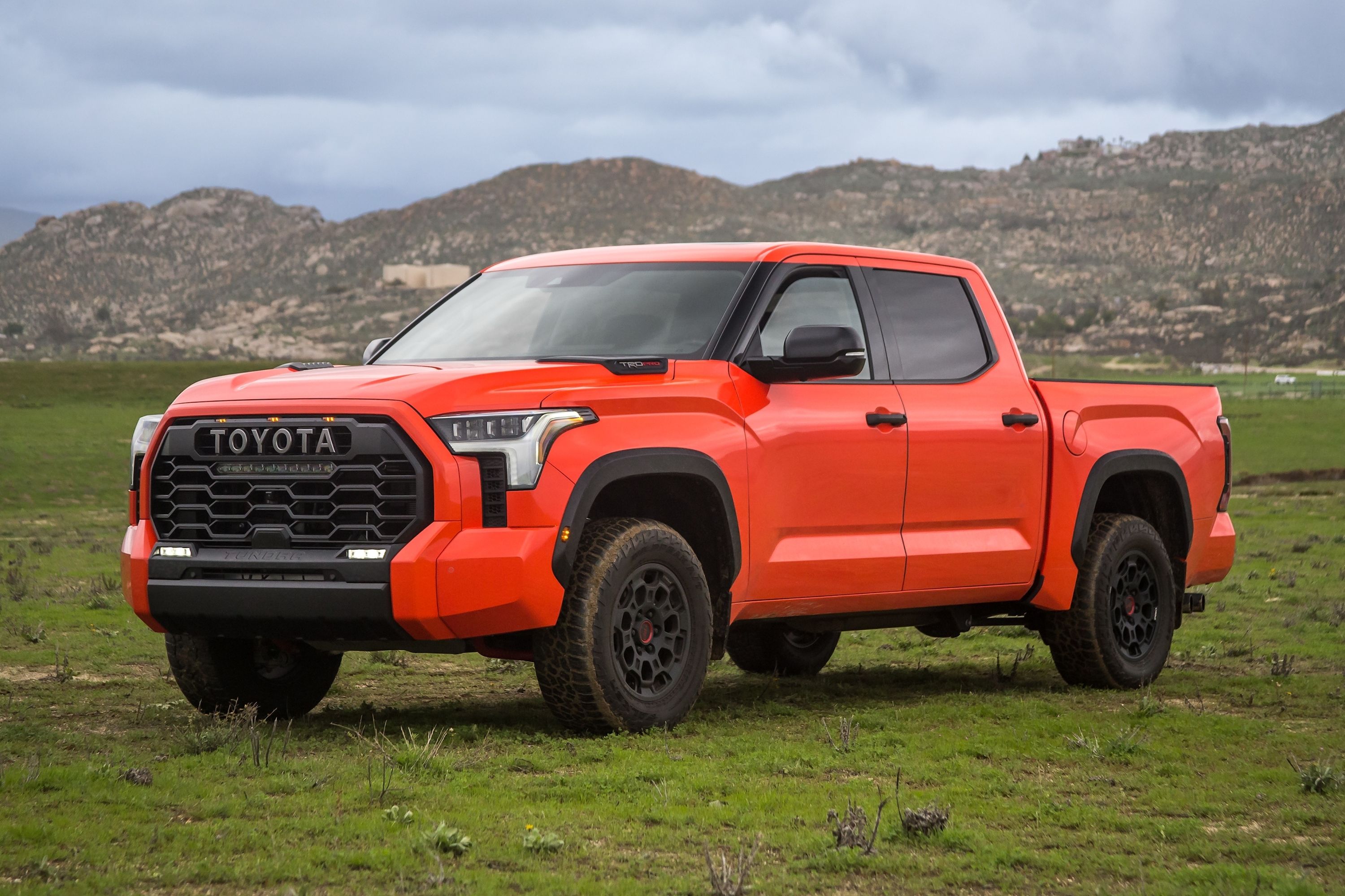
The all-new Toyota Tundra was introduced fairly recently but to the disappointment of some, the large pick-up arrived without a V8 powertrain. That's because it employs the company's TNGA-F platform which only accommodates two V6 engine options. A new report out of Japan, however, hints that a V8 mill could make its way into this chassis further down the line of its lifecycle.
According to Best Car Web, Toyota is experimenting with a hydrogen-powered V8 to be implemented in the current Land Cruiser 300, which also employs the TNGA-F structure. As of now, there is no confirmation on whether the brand is merely using this as a test subject for hydrogen or whether it has plans to introduce this as a mainline product.
The Japanese publication does report that the Land Cruiser will be the first model to adopt this new-age hydrogen combustion engine which not only hints at the possibility of production but also assumes that it will be rolled out into more models. It also appears that the company will be joining forces with Yamaha to develop this new powertrain, much as it did with the Lexus LFA's V10.
Yamaha has been working on this powertrain since 2018 while using Toyota's naturally aspirated 5.0-liter 2UR-FSE as a foundation. The test unit of this engine was unveiled with a power output of 449 horsepower and 398 lb-ft of torque. This is just a slither more than the Tundra hybrid's power output of 437 hp.
This move would come as no surprise given how Toyota has maintained its commitment to hydrogen for decades. Its latest showcase was a conversion of its G16E-GTS powertrain, which was fitted to a GR Yaris prototype. While the manufacturer marks the concept as a successful design, it admits that the technology is still far away from a market release.
Toyota is making a big step into the EV sphere to keep up with the market trends but remains committed to the combustion engine as it continues to develop its hydrogen technology. Its ties with Yamaha and Kawasaki are expected to produce cleaner ICEs for not only thToyota group but also Subaru and Mazda.
